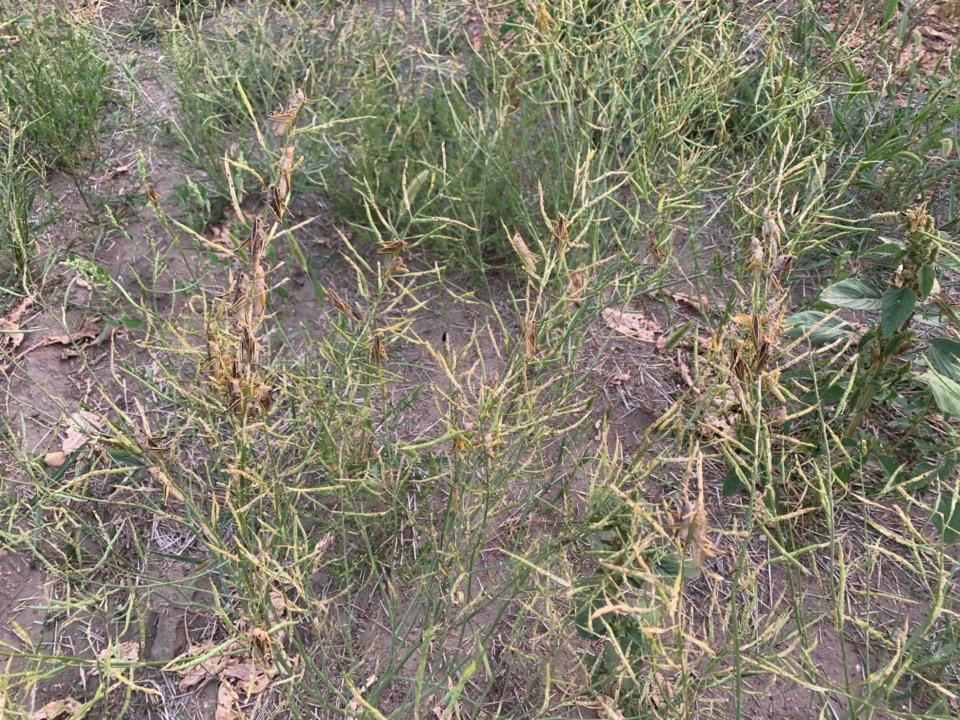ESTEVAN - Justin Lievaart has been farming since 2005, ever since he returned home from university to join his family’s farm south of Outram.
And he says that the grasshoppers are the worst he’s seen in the past 16 years, although he’s quick to add that they’ve been worse in the past.
“We’ve been spraying,” he told the Mercury. “Most of our cereal crops have been sprayed at least once, and our pulse crops have been sprayed once, and then of course a lot of perimeters on different other crops have been sprayed to try to control some of the grasshoppers.”
They have already sprayed about 8,000 acres on the farm to try to control the insects, which is the highest number of acres they have sprayed.
“It’s a tough thing to control completely, because there will be multiple hatches throughout the season. And of course when the grasshoppers are small, they’re a little easier to control, and as soon as they become an adult and have wings and they can fly, then of course it’s pretty tough to control them because they can move from field to field,” said Lievaart.
Other people have employed crop dusting planes to spray crops from corner to corner.
This year has also been a challenge because the chemicals to control the ’hopper numbers are in short supply, since the problem is fairly widespread.
“There are different chemicals you can spray. Certain chemicals will kill a grasshopper on contact only. So when you spray it and it gets the grasshopper, it kills it. Or you can get other chemicals that will do both. It will kill it on contact as well as go into the plant, and when they eat the plant, they’ll die from that too.”
While they have not lost crops as a whole to the bugs, the grasshoppers have thinned out certain areas along ditches and pasture edges.
“You’re not going to lose a complete crop … but they will cause significant economic damage from sitting on a crop and chewing it and eating it,” said Lievaart.
It’s tough to see their efforts for this season get chewed away by the grasshoppers.
Farmers are in the midst of a dry cycle that has stretched through most of the past few years, and that’s very favourable for grasshoppers to lay eggs in the fall, Lievaart said. When there isn’t much moisture in the fall and the winter, the grasshoppers can hatch in the spring.
There hasn’t been much moisture at their farm since spring, either, allowing the insects to flourish.
A lot of farmers have started their harvest operations, so moisture won’t do much to help control the bugs. As crops ripen, grasshoppers will move to something greener or nicer to feed on.
Crops aren’t the only place where the hoppers can be found. They’ve been visible on roads and in yards.
“If we stay in the dry circle like we’re in right now, then it’s hard to know what will happen. We’ll hope for some fall moisture and some snow, and everyone in the agriculture industry needs that,” said Lievaart.




